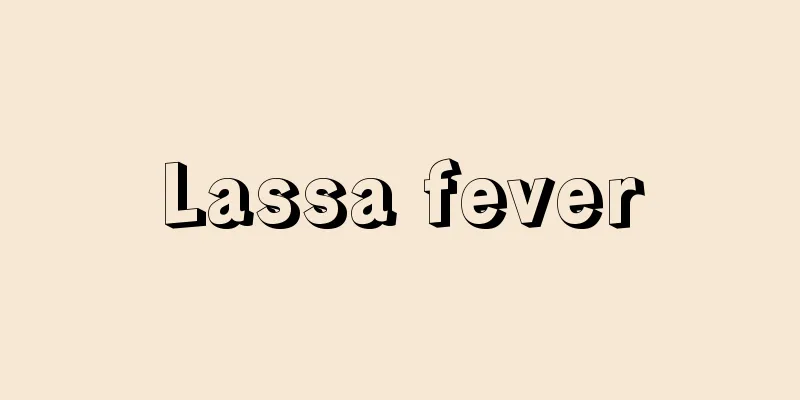Balanced Budget

|
In central and local government budgets, this refers to a situation in which current revenues (taxes, stamp revenues, etc.) are equal to current expenditures (final consumption expenditure, transfer expenditures, etc.), or in other words, government savings are equal to government investment. In the early days of capitalist economy, market mechanisms worked smoothly, and full employment could be maintained and achieved through automatic price adjustment, so there was no need for government intervention. Under such circumstances, the role of public finance was limited to the efficient allocation of resources and the redistribution of income, and it was thought that there was no need to actively aim for economic stability through budget surpluses or deficits, and instead the budget should be in balance. This is the classical "principle of balanced budget." As long as a balanced budget is maintained, the amount of tax collected becomes a cost, and acts as a constraint to prevent inefficient resource transfers. If this principle of balanced budget is broken, it will cause problems such as an increase in wasteful expenses, the creation of future burdens due to the accumulation of public debt, fiscal rigidity, and concerns about inflation and crowding out (private demand for funds). However, as the capitalist economy developed and prices and wages became rigid, market mechanisms became less effective, and full employment equilibrium could no longer be achieved automatically. As a result, the principle of a balanced budget was replaced by a Keynesian "discretionary fiscal policy" that actively adopted deficit and surplus budgets depending on the state of the economy. However, the use of fiscal stabilization policy has been criticized not only for its economic effectiveness, but also for its tendency to lead to budget deficits, inflation, and the expansion of the government sector when implemented in a democratic parliamentary system. In other words, while people directly benefit from a deficit budget, politicians in a representative parliamentary system tend to reject a surplus budget in order to maximize their votes, and as a result, the country as a whole is forced to manage its finances in a way that is biased toward a deficit budget. Deficit budgets also create a fiscal illusion for people, which tends to lower the prices of public goods and expand the government sector. As a result, the principle of a balanced budget has recently been reconsidered. [Tsuguo Fujino] [Reference] | | |Source: Shogakukan Encyclopedia Nipponica About Encyclopedia Nipponica Information | Legend |
|
中央政府や地方政府の予算において、経常収入(租税、印紙収入など)が経常支出(最終消費支出、移転支出など)と、換言すれば政府貯蓄が政府投資と、相等しい状態をいう。 資本主義経済の初期においては市場機構が円滑に作用し、価格の自動調整機能により完全雇用の維持・達成ができ、政府の介入をとくに必要としなかった。このような状況下では、財政の役割は資源の効率的配分と所得の再分配に限定され、積極的に黒字ないし赤字財政で経済の安定を図る必要はなく、逆に予算は収支均衡すべきであると考えられた。これが古典派的「均衡予算の原則」である。均衡予算を維持する限り、租税の徴収額がコストになり、非効率な資源移転を阻止する制約となる。この均衡予算の原則が崩れると、浪費的な経費の増大、公債の累積に基づく後世負担の発生、財政の硬直化、インフレーションおよびクラウディング・アウト(民間資金需要の締め出し)の懸念という弊害が発生することになる。 ところが資本主義経済が発達して、価格や賃金に硬直性が発生し市場機構が有効に働かなくなると、完全雇用均衡は自動的には達成できなくなった。そこで均衡予算の原則にかわり、景気の状態に応じて積極的に赤字・黒字予算を採用するケインズ的「裁量的財政政策」が支持されるようになった。 しかし財政を安定政策に用いる場合、経済的有効性に関してだけでなく、それが民主主義的議会制度の下で行われると、財政赤字、インフレーション、政府部門の膨張につながるという再批判がある。つまり、人々は赤字予算によって直接的に利益を得る一方、政治家は代表議会制度の下で投票の最大化を求めて行動するため黒字予算を拒み、結局国全体としては赤字予算に偏った財政運営とならざるをえない。また赤字予算は人々に財政錯覚をもたらし、公共財の価格を低下させ、政府部門を拡大させる傾向がある。その結果、最近では「均衡予算の原則」がふたたび見直されつつある。 [藤野次雄] [参照項目] | | |出典 小学館 日本大百科全書(ニッポニカ)日本大百科全書(ニッポニカ)について 情報 | 凡例 |
<<: Banking capital - Ginkoushihon (English spelling) banking capital
>>: The study of frugality (English: Qín gōng jiǎn xué)
Recommend
Kalff, D.
…It is a psychotherapy technique that was first i...
Pinus sylvestris (English spelling)
… [Makoto Nishida]. … *Some of the terminology th...
Mood state ratio - Mood state ratio
For example, schizoids are expressed as the ratio...
Hario Island
An island located at the northern exit of Omura B...
Kawachi Genji
Seiwa Genji. Three generations of Minamoto no Yori...
Sorex unguiculatus (English spelling)
…[Yoshiharu Imaizumi]. … *Some of the terminology...
Hasebe Kotondo
Anatomist and anthropologist. Born in Tokyo in 18...
Giant weevil - Giant weevil
An insect belonging to the family Curculionidae i...
Mitra (English spelling)
A god in Hindu mythology. He is inseparably linked...
Brennan, C.
...This trend reached its peak in the 1890s with ...
Takagi - Kouboku
Ecologically, it is a plant that grows large by o...
Three rings
〘Noun〙① Three wheels. ② Buddhist term. (a) Three w...
Puppet Dance - Ningyouburi
In this Kabuki production, the actors perform a pa...
Pierre Monatte
1881‐1960 A French labor movement leader. He quit ...
Ticino (River)
A river that flows through Switzerland and Italy, ...









